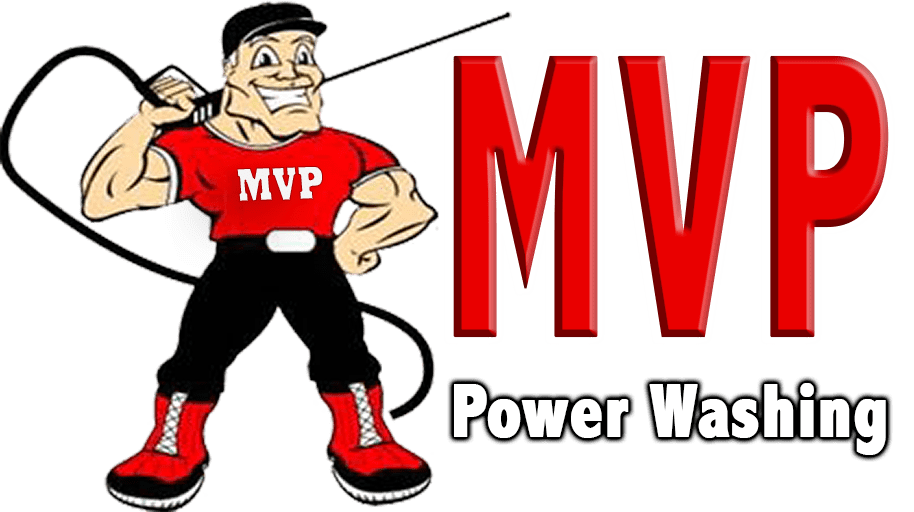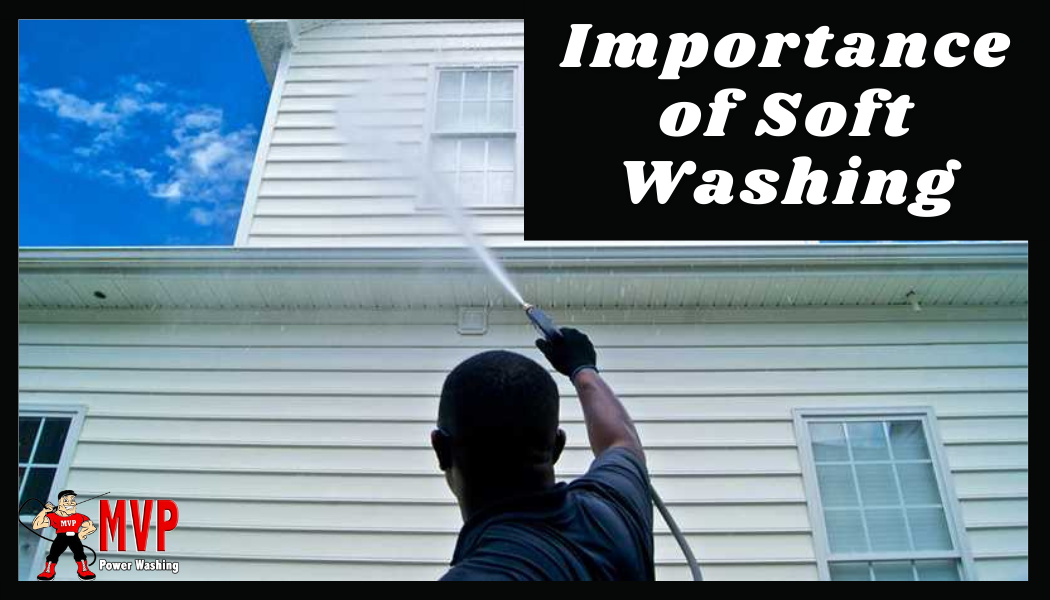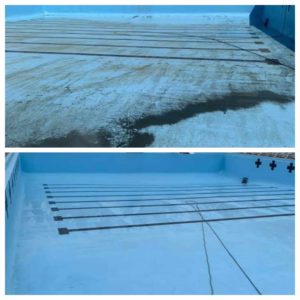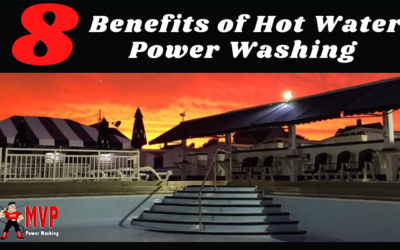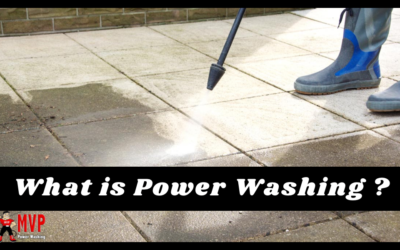Soft Washing Basics
Keeping the exterior of a building looking its best on the New Jersey Shore can be a tough job. Harsh winters. Salt air. Humid summers. Especially in Monmouth County, roofs, cedar siding exteriors, stucco walls and outdoor surfaces can take a beating. Mold, algae, and grime love it here.
The question is, how to keep it all squeaky clean?
More and more professionals are turning to soft washing for specific applications. While blasting a surface with 3,000 lbs. of pressure per square inch (PSI) of water (power washing) can be effective for certain surfaces, it can also be destructive and less effective.
Power washing uses a high-powered pump to force water through a narrow nozzle. Pressures can be between 1,000 psi and 4,000 psi. Enough to easily damage skin and, if used in the wrong applications, to damage buildings.
Enter soft washing.
What is Soft Washing?
Soft washing uses a very low-powered pump to mix water with a cleaning solution that gets gently sprayed on exterior surfaces. Pressures are usually lower than 500 psi, making it as gentle as a garden hose. The cleaning solution, not the pressure, does the work. The solution then sits, or “dwells”, long enough to do its magic by killing biological elements that want to degrade your surfaces. After a few minutes, a slightly higher-powered rinse of pure water is applied to remove the grime and leave a shiny, clean wall or roof.
This cleaning technique is very important in the Monmouth County area. We complete a lot of power washing in the Sea Girt, Spring Lake area. With over 30 years of experience, we have the knowledge to complete your service correctly.
Advantages of Soft Washing
1 – Longer lasting. Because soft washing uses a professionally designed cleaning solutions, it actually kills the problematic spores, fungi, and bacteria that multiply in the Jersey summer. Power washing can blast the surface free of these agents, but they will quickly return. Soft washing effectively sterilizes the surface.
2 – Saves money. Because soft washing lasts longer, you can save money on return visits by your cleaning professional. As a bonus, by doing less damage to your surfaces, they will last longer. Longer roof and siding life means less money on replacements.
3 – Gentle on surfaces. Many surfaces that cover and protect our homes can’t handle the high pressure of a power washer. Too much pressure can literally tear apart some siding and destroy most roofs.
So, how do I know when to use soft washing instead?
When to Soft Wash instead of Power Wash
If you’re trying to clean these surfaces in Monmouth County, NJ, it’s wise to consider a soft wash.
Vinyl siding and gutters
Cedar shake siding
Wood panel siding
Hardie Board siding
Roofs
Stucco
Pavers
Brick
Vinyl siding and gutters. When you start to notice green moss, dark stains, bird droppings, discolorations, and mildew, it’s time for a soft wash. Spring is a great time to do this in New Jersey after the snow, ice and salt have done their thing all winter.
Cedar shake siding. Cedar is a natural, pleasing siding option for folks living near the ocean. It ages beautifully, but its organic nature makes it the perfect home for mold, mildew, and algae.
When moss builds up, or it goes from a light gray into darker black, it could be time for a cleaning. The high pressure of a power washer can damage wood fibers permanently and leave you with a temporary clean. The same goes for almost all wood paneling and Hardin Board siding. The biodegradable cleaning solutions in soft washes give long-lasting protection without structural damage.
Roofs. There is seldom a reason to have a power washer on a roof. Most roofs are made of asphalt shingles. These shingles get their durability and protection from tiny pebbles that adhere to the surface. These pebbles protect from the sun and rain. They keep the shingles useable. Blasting them with high pressured water ruins them in short order.
Furthermore, moss is one of the biggest culprits in roof damage. The cleaning agents in soft washes kill the spores that allow them to reproduce and grow. Without those agents, the moss will be back next year.
Stucco siding. Stucco is a thin finish coat of a cement-type mixture. While durable, it can also be a great home for mold. High-pressure water streams can get into tiny cracks and cause flaking and chipping. And they don’t kill the spores that cause mold growth.
Pavers and brick. The grout between tiles and bricks can be damaged with power washing. And, because they can be porous, many of these surfaces require a cleanser to penetrate and do the dirty work. An experienced professional can tell you when soft washing is the right choice.
Soft Washing Questions
Will the cleaning solution hurt my plants?
An experienced soft washer will know how to protect your plants with a presoaking procedure.
Are the cleaners toxic?
Many of the cleaning solutions have an extremely diluted chlorine solution. However, chlorine quickly degrades in the open air. A trained cleaner will use the least amount of chlorine possible in the solution. Your house will actually have a fresh, clean smell for a while.
Can I do this myself?
While technically possible to buy or rent the tools needed to do this DIY, it is not recommended. Mixing the solutions to be effective requires knowledge and practice.
How much will it cost?
Call us at (732) 282-1777. Or fill out our contact form.
Estimates are free. And we’re happy to help you decide whether you need a soft or power wash.
